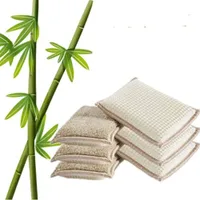I’m an avid home cook – here is how I clean and disinfect my wooden spoons
Cleaning wooden spoons isn't difficult, even though you can’t use the dishwasher

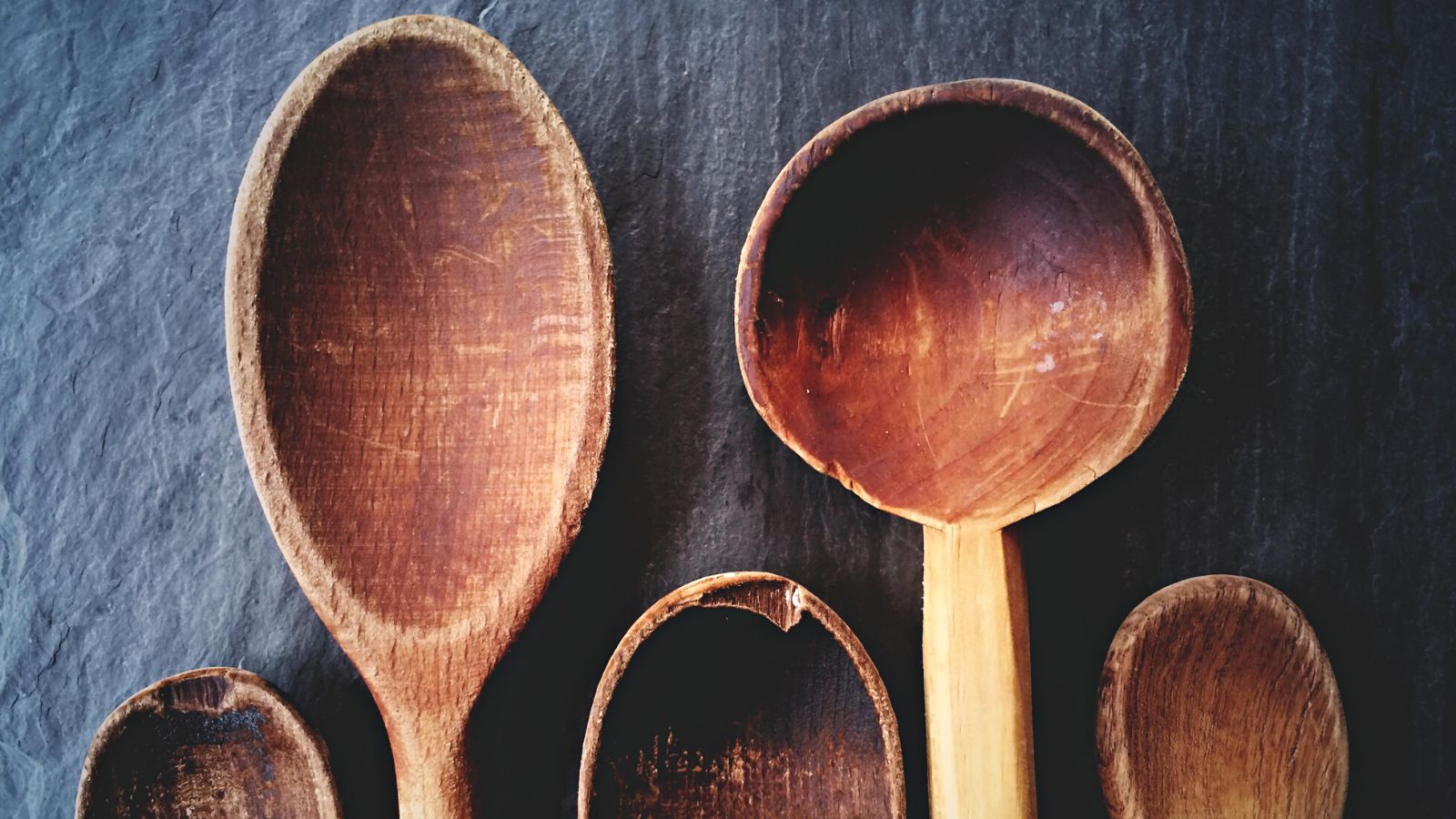
I have been cooking and baking with my mom in her kitchen since I could stand at the kitchen counter on a step stool. One of my stand-out memories was always using my great-grandmother's wooden spoon and ceramic bowl to make Christmas cakes each year.
Although you could just throw wooden spoons in a dishwasher, cleaning them by hand is the only way to go if you don't want to be replacing your wooden tools every few months. A good wooden spoon is essential in any kitchen – and not just as a rustic decor piece. Favored by professional chefs for their lack of reactiveness with acidic foods and inability to scratch non-stick pans, keeping them in perfect condition is paramount.
The good news is it doesn't take much effort at all. Here I explain how I clean wooden spoons in three easy steps to keep them sanitized and looking their best.

Chiana has been at Homes & Gardens for six months, having started her journey in interior journalism as part of the graduate program. She spends most of her time producing content for the Solved section of the website, helping readers get the most out of their homes through clever decluttering, cleaning, and tidying tips – many of which she tests and reviews herself in her home in Lancaster to ensure they will consistently deliver for her readers.
How to clean wooden spoons
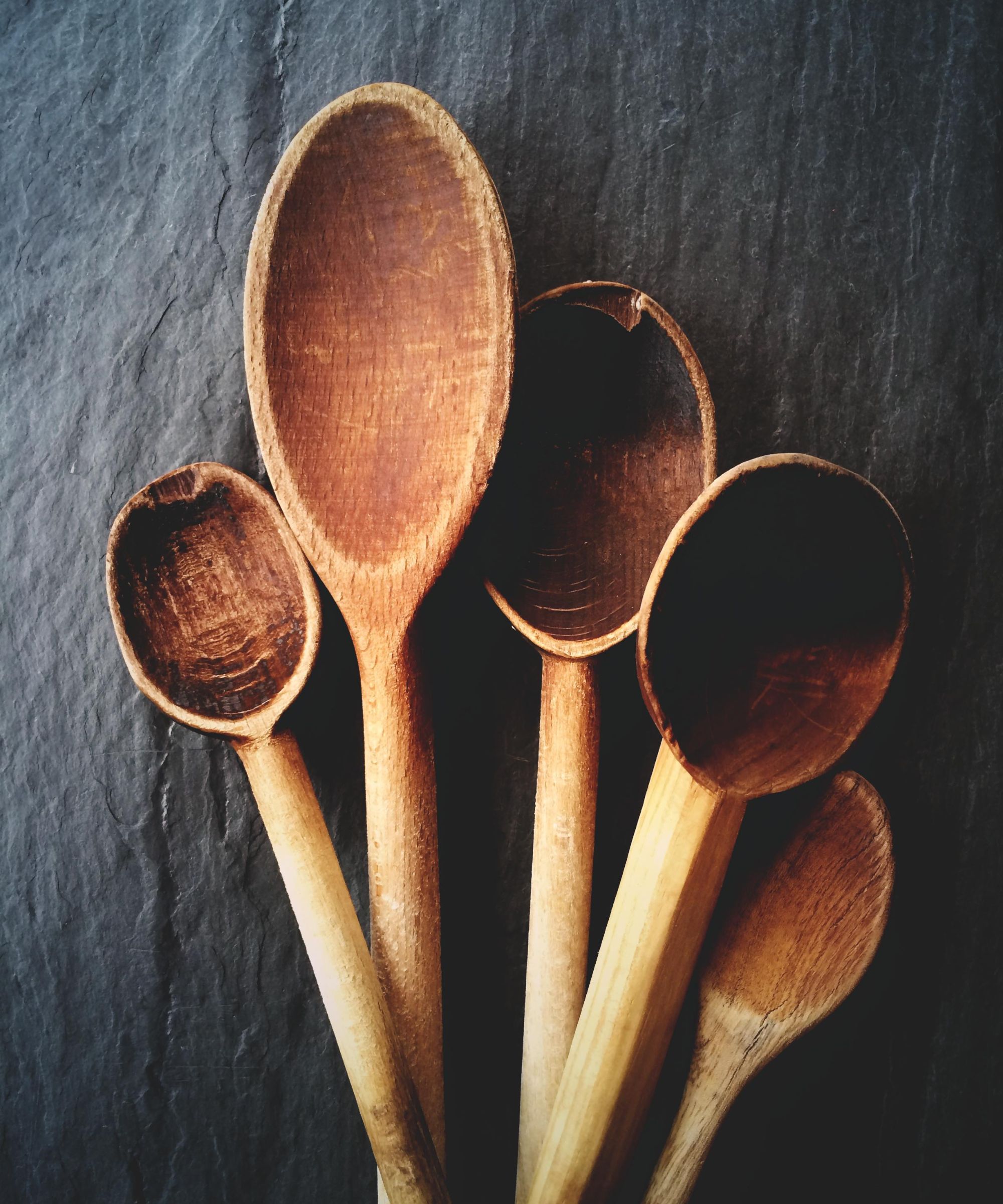
Understanding which things you should never put in a dishwasher is essential to keeping a good kitchen – and wooden spoons (or any wooden kitchen utensil) are one of many you should be cleaning by hand.
Although it may sound time-consuming, the process is as simple as letting it sit to soak for a short while as you get in with other things. Here is what I do.
You will need:
- Boiling water
- Neutral dish soap: such as Dawn from Walmart
- Baking soda: I keep a tub of baking soda, at Amazon under my sink specifically for cleaning
- Vinegar: An extra-strength cleaning vinegar, at Amazon is perfect for household chores
- A clean kitchen towel: This linen towel from Anthropologie is a stylish functional pick
- OPTIONAL – Food-grade wood oil: Earlywood oil from Amazonis highly rated
1. Wash the spoons with water and soap
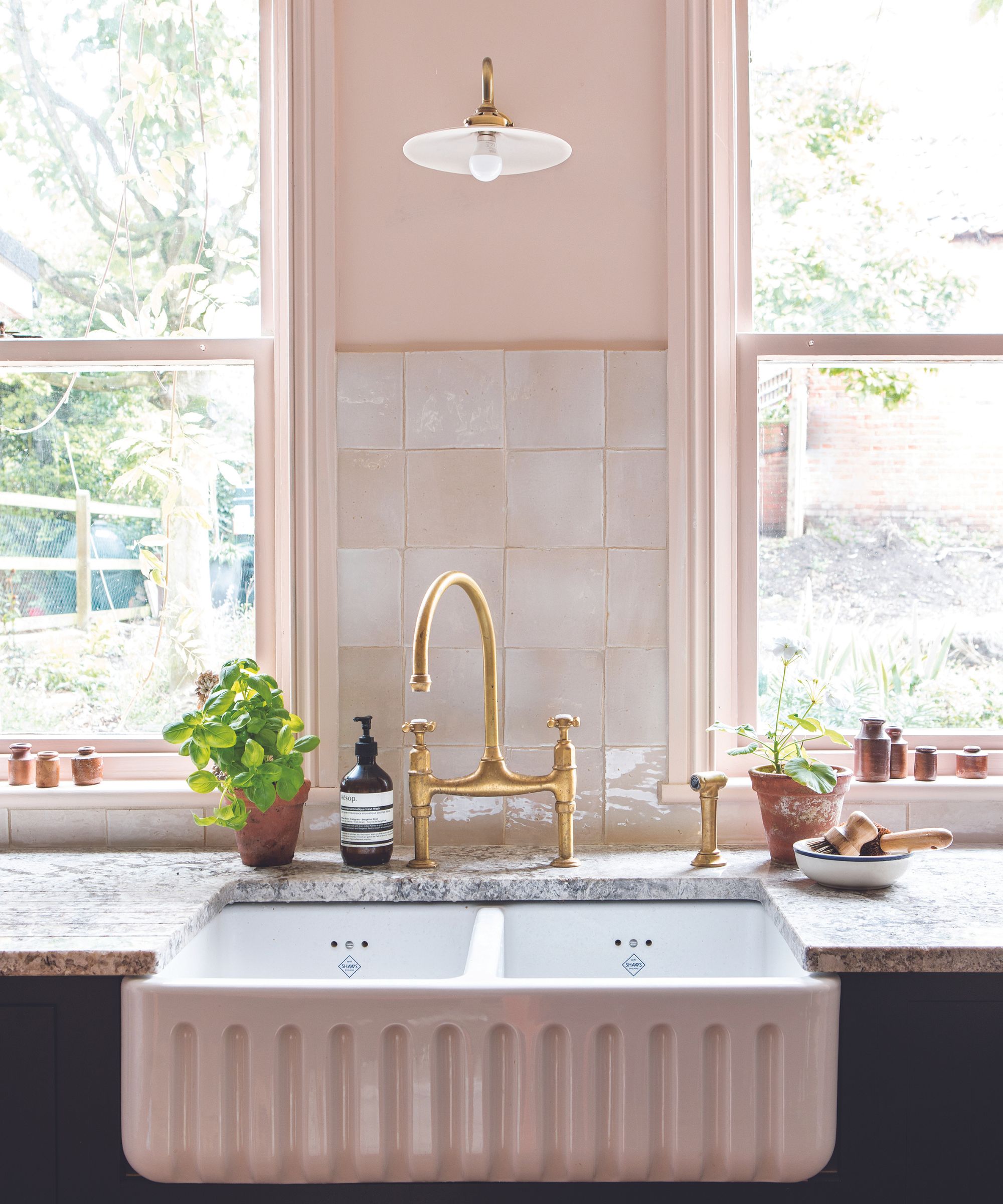
Washing with warm water and gentle dish soap is the simplest way of freshening up wooden spoons before soaking them. I like to use a very gentle abrasive sponge, like these reusable sponges from Amazon, to help remove any surface dirt and grime from my wooden spoons before soaking.
I always make sure to clean my wooden spoons as soon as I have finished using them, too, avoiding letting them sit coated in food or in water for any longer than half an hour at most.
Design expertise in your inbox – from inspiring decorating ideas and beautiful celebrity homes to practical gardening advice and shopping round-ups.
Reusable Bamboo Sponges | $11.98 at Amazon
I love to use reusable dish sponges to help me stay sustainable at home. They are perfect for cleaning dishes and around the house, plus they can easily be thrown in the washing machine or dishwasher to freshen up between uses. They also help to save me money in the long-run, too!
2. Soak the spoon in water, vinegar, and baking soda
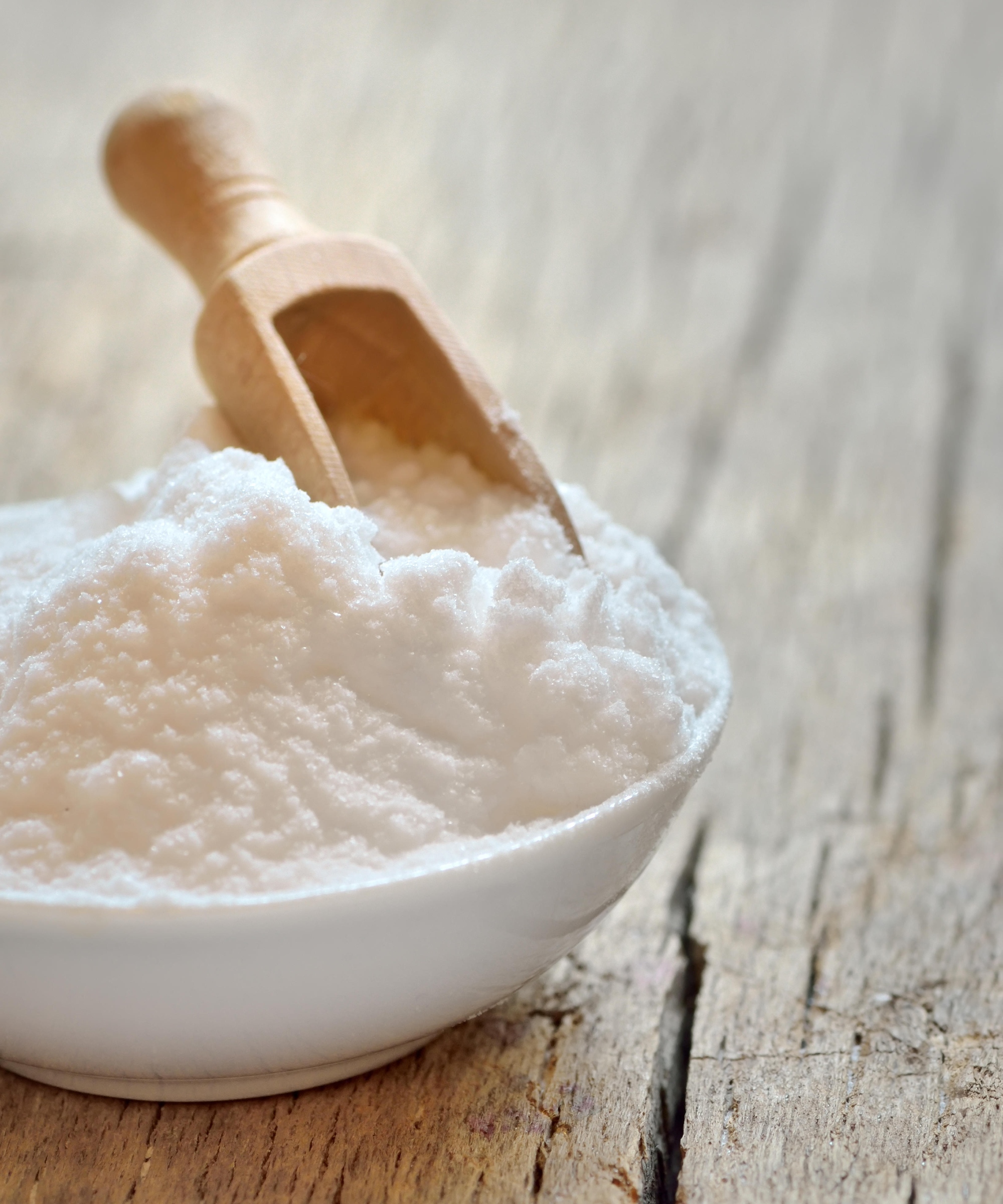
Like many other things that can be cleaned with vinegar, wooden spoons benefit from a short stint in a water-vinegar soak to help remove any odors and pull out any embedded oil and grease.
To do this, I combine equal parts distilled white vinegar with boiling water in a tall container before adding a couple of spoons of baking soda. This helps to activate the vinegar to create deep-cleaning bubbles and deodorize the wood. I then pop the washed spoon in, stir briefly, and allow it to sit for 20-30 minutes (at most) to allow the vinegar to work. If you look closely, you will likely see small bubbles or oil leaving the spoon, and for spoons that have been washed in a while, bits of debris float on the top – gross!
I typically do this once every month to help keep on top of my spoons but may do it more, or less, often depending on their usage. As someone who cooks from scratch nightly, it is often more often than not!
3. Rinse the spoon and dry thoroughly
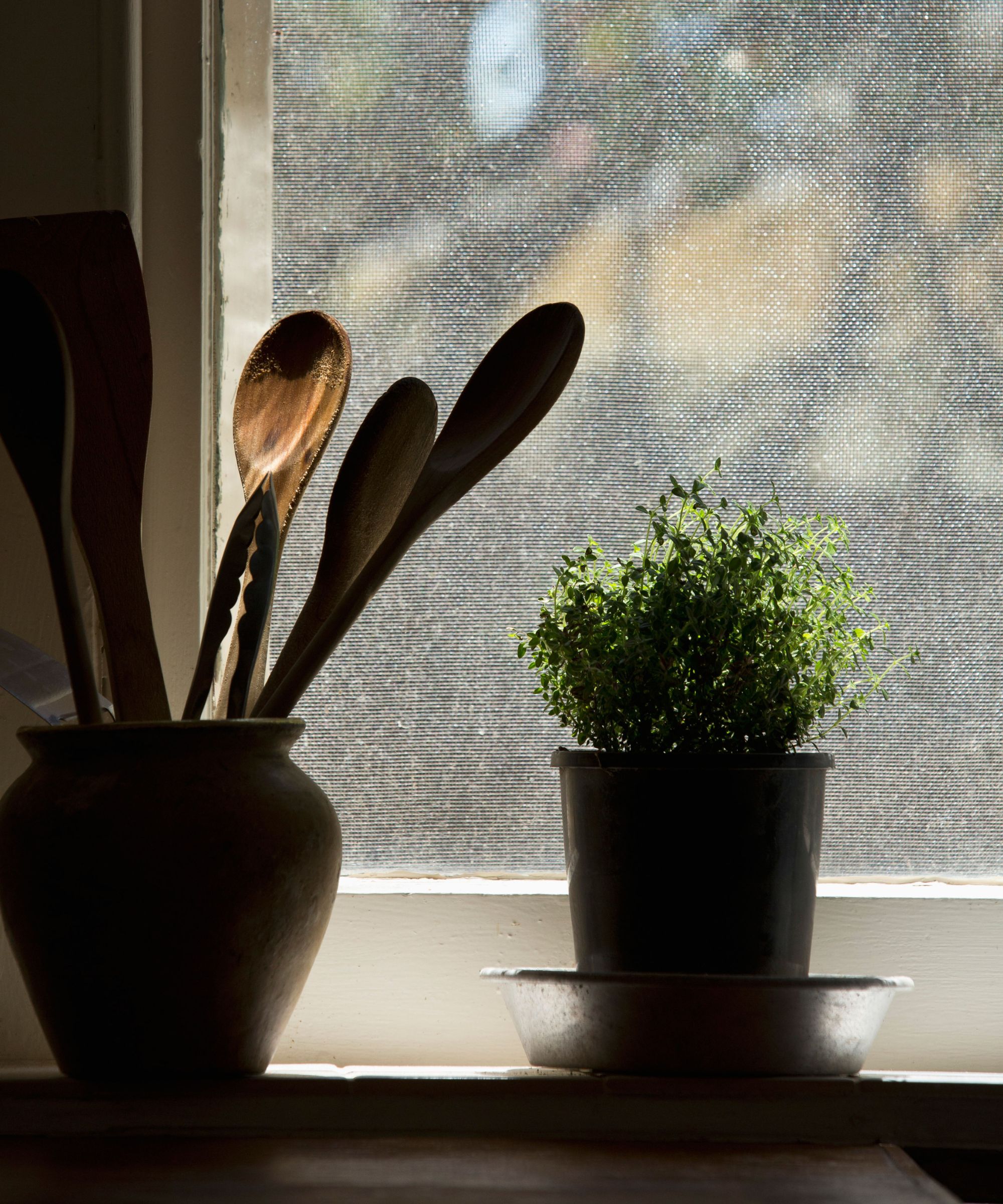
After the 20-30 minutes are up, I empty out the vinegar water mix and rinse the spoon in plain water to remove any baking soda residue. It is then important to dry it out thoroughly before putting it away in your kitchen organizers or utensil pot.
I use a clean, dry kitchen dish towel to pat the wood dry before leaving it out on the towel in a warm, dry spot such as my kitchen countertop when I am not cooking, or on a windowsill in another room to help dry it completely.
Optional: Treat the spoons with wood oil
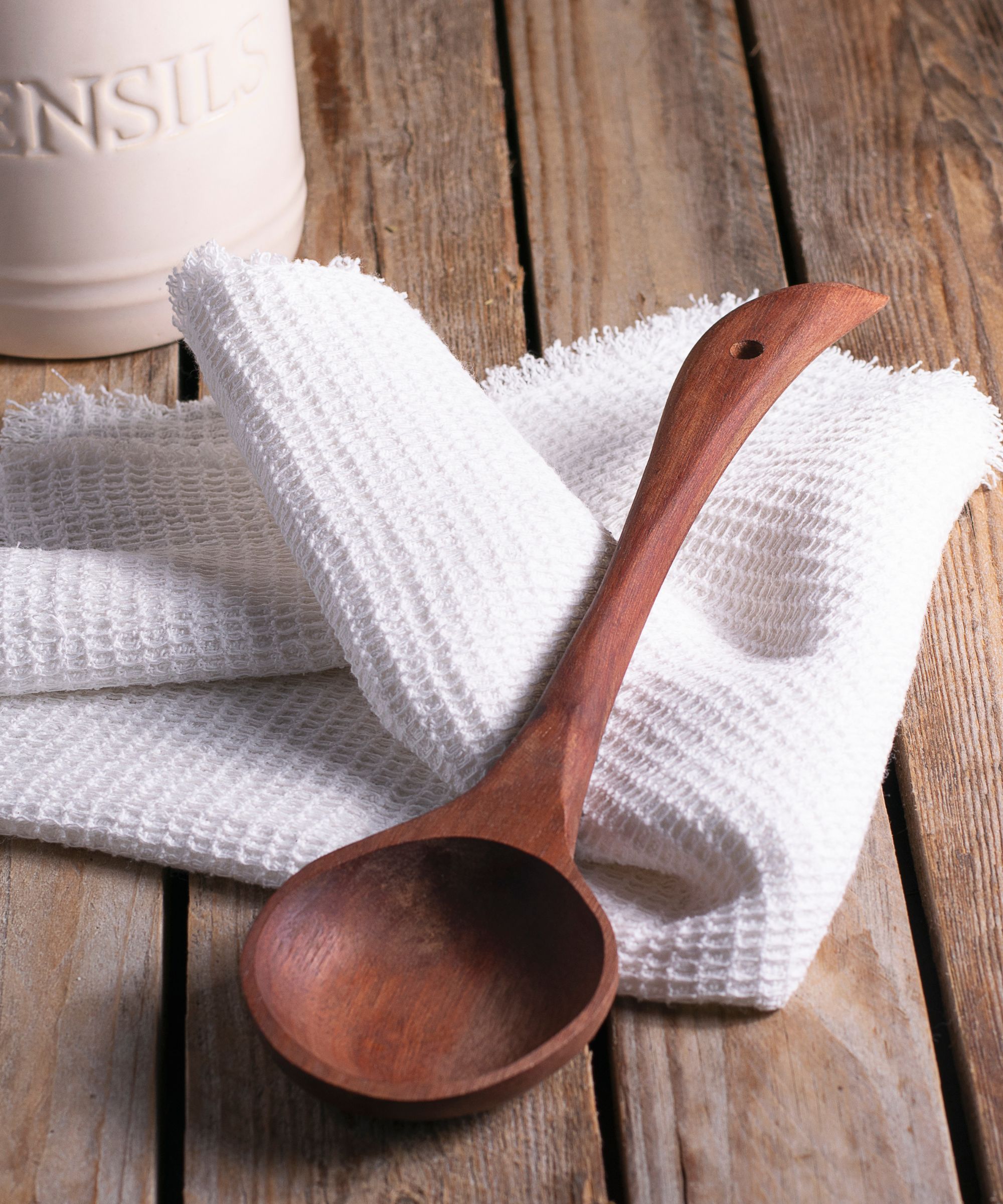
If you truly want to keep your spoons in top condition, as I do with my great-grandmother's, then adding a light coating of food-grade wood oil can help to prevent the wood from cracking, make wooden spoons easier to clean, and make them look nicer too.
Much like caring for a wooden cutting board, ensure the wooden spoon is completely clean and dry before buffing the wood oil into the grain using a clean, dry soft cloth. After allowing it to soak for a few hours overnight in a well-ventilated space, remove any excess with a paper towel or cloth and store it somewhere dust-free like an organized kitchen drawer ready for its next use.
Some of the best oils to use are made from olive oil, coconut oil, or linseed oil to ensure they are food safe. Beeswax is often used on cutting boards, but can melt into your food when used on a wooden spoon in hot liquids so should be avoided.
FAQs
Can you wash wooden spoons in the dishwasher?
You should never wash wooden spoons in a dishwasher. Any wooden kitchen utensil, from spoons to bowls to chopping boards should all be washed by hand and treated with care to prevent soaking in hot water for long periods of time. Not only does leaving wooden spoons in the dishwasher cause them to warp, but promotes bacterial and mold growth as water and bacteria soak in and make it difficult to dry properly.
Does boiling water clean wooden spoons?
Plain boiling water can be used to help clean wooden spoons by dissolving grease, however, it is not as effective as using water mixed with vinegar and baking soda which can help penetrate grease deep in the wood and deodorize at the same time.
Why do chefs prefer wooden spoons?
Chefs typically favor wooden spoons over synthetic materials as they do not heat up to dangerous temperatures, they do not react with foods (especially acidic foods), and they do not scratch non-stick pans and coatings. They are incredibly versatile utensils that you will likely find in any professional kitchen.
Are wooden cooking spoons sanitary?
Although wooden spoons absorb liquid, natural wood has natural anti-bacterial properties that make it more beneficial to cook with than plastics – especially plastic tools that have been scratched or dented. You can add protective wood oil to help make cleaning wooden spoons easier, too.

Chiana is Homes & Gardens’ kitchen appliances editor. With a lifelong passion for cooking and baking, she grew up experimenting in the kitchen every weekend with her baking-extraordinaire Mom, and has developed a great understanding of how tools and appliances can make or break your ideal relaxing kitchen routine.
